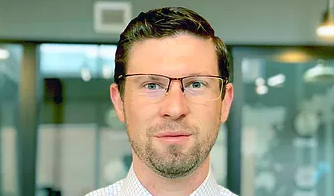Nuclear Power's Role in Combating Climate Change

- Date
- Wednesday 30 October 2019, 15:30 - 16:30
- Location
- School of Mechanical Engineering Lecture Theatre C (room 2.34)
- Speaker
- Bret Kugelmass , Energy Impact Center, Columbia, USA
School of Civil Engineering Seminar series 2019-20
Abstract
Solving climate change requires far more than the total elimination of annual greenhouse gas emissions. The complete decarbonisation of electricity, agriculture, transportation, building heat, and industrial sectors may reduce the rate at which we accumulate heat, but will have no impact on the previous emissions that already, and will continue to, cause the majority of radiative forcing. Taking a first principles approach that draws from mathematics, physics and economics, Bret Kugelmass derives a pathway towards global scale removal of greenhouse gas on a timeline fast enough to avoid the worst scenarios. He argues that by deploying nuclear energy at scale, we can power the transition to a global carbon negative economy in a way that aligns short-term individual economic motivations with long-term environmental preservation. He connects this vision to current market conditions, analysing the nuclear industry through a multifaceted context—economics, technology, history, supply chain, communication, and policy, as he dissects counter-intuitive narratives and explores pathways toward exponential growth.
Biography
Bret Kugelmass is a former technology entrepreneur who's dedicated his focus to climate and energy challenges. One of the early pioneers in commercializing drones he founded, ran, and sold a business within complex technical, regulatory, and public opinion frameworks. He received his Masters in robotics from Stanford in 2011 and his earlier work includes designing a lunar rover controller for NASA, a concept electric car for Panasonic, and automating solar manufacturing processes for Nanosolar. In 2017, he launched a DC based research institute (the Energy Impact Center) focused on exploring the challenges and opportunities of nuclear power's role in deep decarbonisation. Their work includes publishing audio interviews with hundreds of experts throughout the nuclear sector.
